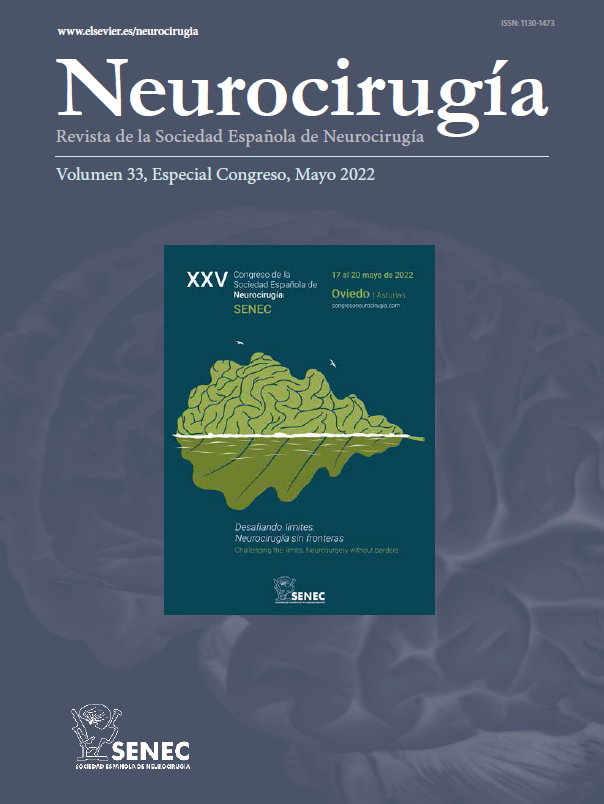P-137 - SURVIVAL AND RECOVERY AFTER A GUNSHOT PENETRATING BRAIN INJURY: A CASE REPORT AND REVIEW OF THE LITERATURE
Hospital Puerta de Hierro, Majadahonda, Spain.
Introduction: A gunshot penetrating brain injury (PBI) is a lethal injury with high mortality rates. It is possible to find cases with complete recovery in time.
Methods: 45-year-old Caucasian civilian male suffered a PBI from a projectile under unknown circumstances. The patient presented an incised-blunt wound in the right frontal region with the brain mass coming out; Presented to the hospital with a Glasgow Coma Scale (GCS) score of 10 and pupillary response normal. Computed tomography (CT) revealed the trajectory, from a right frontal entry wound, the bullet traversed the hemisphere reaching the internal occipital diploe. Angio-CT ruled out arterial abnormalities.
Results: The patient underwent decompressive craniectomy, removal of accessible metallic fragments, hemostasis of injured tissue, dural repair and local debridement of necrotic tissue; a intracranial pressure monitor was placement. The patient recovered well. Initially he presented plegia of the left lower limb and mild paresis of the left arm. After rehabilitation treatment, the patient is able to ambulate with the help of a cane. Actually, he is cognitively independent. There were no complications; prophylaxis against infection and seizure development was associated.
Conclusions: GCS ≤ 8, lack pupil abnormalities, bi-hemispheric and posterior fossa involvement, cerebral herniation and intraventricular hemorrhage are considered predictors of mortality. Authors defend that patients with GCS > 5 should undergo aggressive surgical therapy, which is essential to improve prognosis and patient outcomes. The most frequent complications after a PBI are infection, cerebrospinal fluid leak and seizure; traumatic intracranial aneurysms is a rare complication that may appear.







